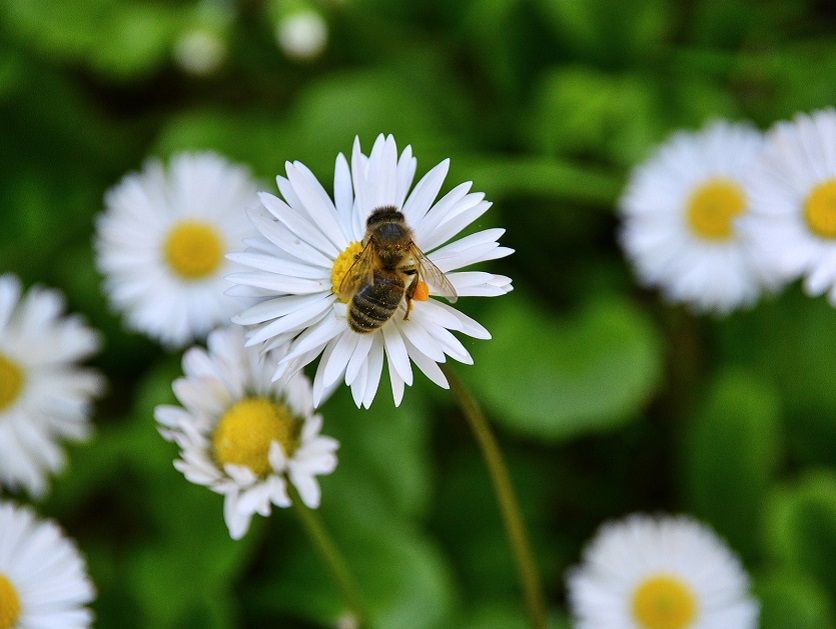WASHINGTON, Feb. 22, 2017 – Bayer and its partners in a new Feed a Bee steering committee are making available $500,000 over the next two years to fund projects that will increase forage and plantings for honey bees, monarch butterflies and other pollinators in every state in the U.S.
The initiative aims to build on Bayer’s Feed a Bee program, now in its third year, which the company says has rallied more than 900,000 individuals and 117 organizations to plant more than 2 billion wildflowers across the U.S., creating and expanding forage areas for pollinators.
"We convened the (Feed a Bee) steering committee to address an extreme need, now more than ever, to invest in forage and planting initiatives across the country," said Becky Langer, project manager, North American Bee Health, for Bayer’s Crop Science division. "Today's announcement represents a collaborative effort of some of the leading bee health stakeholders who are making it our mission to support the expansion of these programs and make sure organizations in every state in the U.S. have the opportunity to bring their pollinator initiatives to life."
Learn about the benefits of subscribing to Agri-Pulse. Sign up for your four-week free trial Agri-Pulse subscription.
The committee is requesting forage initiative proposals that will promote pollinator health and help provide a tangible solution to the current lack of forage. Nonprofits, growers, trade groups, beekeepers, businesses, schools, clubs, gardening groups, government agencies and others are all encouraged to submit proposals.
To be considered, proposals must include the following priorities to be considered for funding:
- Establishing pollinator forage via a dedicated planting or habitat restoration led by the applying organization. Examples of activities may include but are not limited to establishing a pollinator garden, increasing acreage of existing forage, management of right of way vegetation, restoration of native habitat land, etc. Location must be viable and able to support pollinator forage plants (wildflowers, ornamentals or trees) and pollinators, including (but not limited to) farms, community/urban gardens, schools, rights-of-way, etc.
- Education initiative encouraging others to establish pollinator forage. Promote pollinator education to third parties, sharing with them the importance of planting diverse, abundant forage to provide pollinators with enough food.
Proposals should also include an executive project summary of no more than 500 words as well as requested dollar amount and an itemized budget.
Funding will be distributed in grants of $1,000; $2,500 or $5,000, and proposals will be accepted on a rolling basis. Proposals submitted before March 31 will be considered for initiatives and events to occur July – September 2017. The first projects funded will be announced during National Pollinator Week, June 19-25. I
Click here for more information and for directions on how to submit proposals.
The members of the Feed a Bee Steering Committee include:
- Barry Nevaras, Massey Services
- Becky Langer, Bayer Bee Health
- Billy Synk, Project Apis m.
- Dan Price, Sweet Virginia Foundation
- Diane Wilson, Applewood Seed
- Doris Mold, American Agri-Women
- Keith Norris, The Wildlife Society
- Nikki Hindle, Ernst Conservation Seed
- Rick Johnstone, IVM Partners
- Sandy Farber, University of D.C.
- Scott Longing, Texas Tech University
- Scott Witte, The Bee Barometer Project at Cantigny Golf
- Vince Restucci, R.D. Offutt Company
- Zac Browning, Honey Bee and Monarch Butterfly Partnership
#30
For more news, go to: www.Agri-Pulse.com


